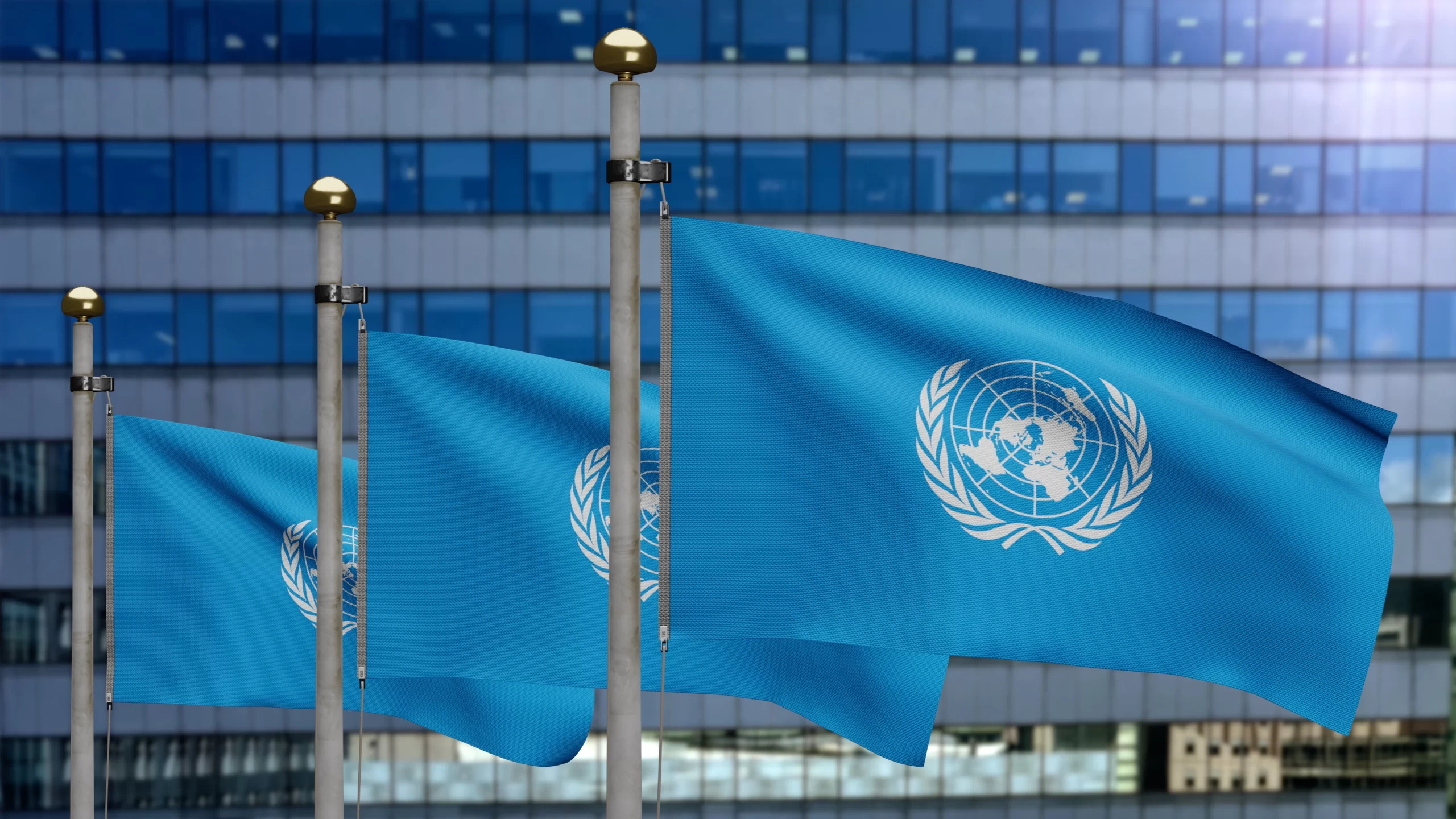Since its creation in 1945, the United Nations Security Council has been the main body responsible for maintaining international peace and security. Comprised of 15 members, each Member State holding one vote, the Council plays a key role on the global stage, seeking to resolve conflicts and prevent threats to world peace.
The Charter of the United Nations states that all Member States are bound by the decisions of the Security Council. This requirement reflects the importance given to the role of the body in promoting stability and harmony among nations. Through resolutions, the Council can recommend peaceful measures to resolve disputes between countries, encouraging negotiation and the search for diplomatic solutions.
The Security Council also plays a crucial role in identifying and responding to threats to international peace and security. Its power to determine the existence of a threat or act of aggression allows preventive measures to be taken before conflicts escalate and jeopardize regional and global stability.
Once a threat is identified, the Security Council can adopt more assertive measures, such as imposing economic sanctions or even authorizing the use of military force. The imposition of sanctions aims to put pressure on the parties involved in a conflict, encouraging them to seek peaceful solutions and respect the principles of international law. On the other hand, authorizing the use of force only occurs as a last resort, when all peaceful options have been exhausted and there is an urgent need for intervention to restore peace and security.
However, it is important to emphasize that the use of military force by the Security Council is a complex and delicate decision, as it must take into account the legitimacy of the action, the proportionality of the measures taken and respect for human rights. The international community, through the Council, must act responsibly and thoughtfully, ensuring that any military intervention is conducted in accordance with the principles of legality and justice.
In addition, the Security Council's effectiveness in maintaining international peace and security also depends on the cooperation of Member States and respect for the international system based on multilateral norms and agreements. Dialogue between Board members and willingness to seek consensus are fundamental to ensure that its decisions are effectively implemented.
Among the tools available to the Council to exercise its authority are mandatory sanctions, a non-coercive mechanism designed to pressure states or entities to comply with established objectives without resorting to the use of force.
Mandatory sanctions, as provided for in the Charter of the United Nations, are restrictive measures imposed by the Security Council for the purpose of promoting behavioral changes in States or entities that pose a threat to international peace and security. These sanctions can range from trade and financial restrictions to travel bans and asset freezes, seeking to create a significant impact on the economy and mobility of targeted targets.
One of the main purposes of mandatory sanctions is to enforce compliance with Security Council resolutions. Whether in the resolution of armed conflicts or in response to issues of non-proliferation of weapons of mass destruction, terrorism or violations of human rights, these measures are intended to encourage States or entities to comply with the principles and guidelines established by the international community.
It is reiterated that, by making use of mandatory sanctions, the Security Council seeks to avoid, as far as possible, resorting to the use of military force. This approach reflects the commitment of the international community to seek peaceful solutions to global challenges and preserve stability and security without resorting to armed conflict, which can have devastating consequences for affected populations.
Furthermore, the success of mandatory sanctions is also intrinsically linked to international cooperation. The effective implementation of these measures requires the engagement and buy-in of UN Member States, as compliance with sanctions often depends on coordinated actions at the global level. Failure to cooperate could weaken the effectiveness of sanctions and undermine the Security Council's credibility in its initiatives.
In this way, the United Nations Security Council plays a crucial role in promoting international peace and security. Its power to determine threats and its ability to take measures to address them are critical to global stability. However, political challenges and disagreements among members remain obstacles to the Board's effectiveness. In light of this, the pursuit of reforms and greater cooperation among Member States remains essential for the Security Council to fulfill its mission and work towards a more peaceful and secure world for all.
Security Council Reaffirms Commitment to the Two-State Solution
At the last meeting of the United Nations Security Council, held on February 20, 2023, the Palestinian issue and the situation in the Middle East were highlighted in the discussions. The chairman of the Council's Security Department made a statement, reaffirming fundamental principles and positions.
The Security Council reiterated the right of all States to live in peace within secure and internationally recognized borders. Furthermore, he stressed that both the Israeli and Palestinian people are entitled to equal measures of freedom, security, prosperity, justice and dignity.
The unwavering commitment to the vision of a two-state solution was also underscored. The Council advocates the coexistence of Israel and Palestine as democratic states, living side by side in peace, within secure and recognized borders, in accordance with international law and relevant UN resolutions.
However, during the meeting, deep concerns and dismay were expressed regarding the announcement made on February 12, 2023, which involved building and expanding settlements, as well as the “legalization” of settlement outposts. The Security Council reiterated that these activities are endangering the viability of the two-state solution based on the 1967 lines.
The Council strongly emphasized the need for all parties to fulfill their international obligations and commitments. Measures that impede peace, including building and expanding settlements, confiscating Palestinian land and “legalizing” settlement outposts, demolishing Palestinian homes and displacing civilians, were firmly condemned.
Condemnation of all acts of violence against civilians, including acts of terrorism, was another position emphasized by the Security Council. In this context, the Council called for strengthening efforts to combat terrorism in accordance with international law and urged all parties to clearly condemn acts of terrorism and to refrain from inciting violence. In addition, the Council reiterated the Palestinian Authority's obligation to renounce and address terrorism.
This Security Council meeting highlighted the complexity and sensitivity of the Palestinian issue and the importance of seeking peaceful solutions and constructive dialogue to achieve the desired stability and security in the Middle East. The declarations made by the Security Council reinforce the international commitment to peace and the search for a future of coexistence for all the peoples of the region.
The two-State solution also receives support from a large part of the international community, which sees in this model a form of reconciliation and peaceful coexistence between the two parties involved in the conflict. Respect for international law and relevant UN resolutions is critical to ensuring the success of this process and reaching a mutually acceptable agreement for both parties.
In this context, it is essential that the international community and UN Member States continue to support and encourage negotiations between Israel and Palestine, seeking to create an enabling environment for constructive dialogue and the search for mutually acceptable solutions. Humanitarian aid and economic development also play an important role in building confidence and stabilizing the region.
Therefore, the reaffirmation of the United Nations Security Council's commitment to the two-state solution is an encouraging signal for all involved in the Israeli-Palestinian conflict. The vision of a peaceful and prosperous coexistence between Israel and Palestine remains an achievable goal, but it requires concerted and determined action to overcome the challenges and find mutually acceptable solutions. The support of the international community is essential to ensure a future of lasting peace and security in the Middle East.
Security Council supports Inclusive Political Process in Libya
At a recent meeting held on March 16, 2023, the United Nations Security Council issued an important statement on the situation in Libya, highlighting its strong commitment to an inclusive political process, led and owned by the Libyan people. This statement underscores the Council's support for the holding of free and fair elections, allowing the Libyan people to determine who will govern them.
The Security Council commended Egypt's role in facilitating talks in Cairo between the House of Representatives (HoR) and the High State Council (HSC). The gradual progress made on the constitutional framework for elections and the 13th Amendment to the Constitutional Declaration were welcomed by the Council, which recognizes the importance of giving new impetus to build on this progress.
Libya has faced significant challenges on its journey to political stability and reconciliation after years of conflict. The support and commitment shown by the United Nations Security Council towards an inclusive political process are essential steps towards achieving a peaceful and prosperous future for the country.
In this context, in a recent declaration, the United Nations Security Council reminded all Member States of the obligation to fully comply with the arms embargo imposed on Libya by resolution 1970 (2011), together with its modifications in subsequent resolutions. This requirement aims to promote peace and stability in the country and prevent the illegal flow of weapons that has contributed to the escalation of the conflict in the region.
Furthermore, the Security Council emphasized that Libya's petroleum resources must be used for the benefit of all Libyans. In recognition of efforts to unify financial institutions, including the Central Bank, the Council welcomed the work of the Economic Working Group of the International Libyan Follow-up Committee to the Berlin Process. The objective is to support Libya in improving revenue management and transparency for the well-being of the entire Libyan population. The Security Council reaffirmed its intention to ensure that assets frozen in accordance with paragraph 17 of resolution 1970 (2011) are subsequently made available for the benefit of the Libyan people.
Another issue of extreme concern is the smuggling of migrants and refugees, as well as human trafficking through Libya. The Security Council reiterated its grave concern over the situation faced by migrants and refugees, including children, in Libya. In this regard, the need to support new efforts to strengthen the management of the Libyan borders was highlighted, with the aim of combating these illegal practices and protecting the human rights of migrants. The Council urged the Libyan authorities to respect and protect the rights of these individuals and to take effective measures to close migrant detention centers, which have been the subject of allegations of human rights violations.
Furthermore, the Security Council reaffirmed its strong commitment to Libya's sovereignty, independence, territorial integrity and national unity.
Taken together, these measures reflect the commitment of the international community to support a stable and peaceful Libya, as well as to ensure the protection of human rights and the fulfillment of resolutions that aim to promote the security and well-being of all Libyans. The path to peace in Libya requires a comprehensive approach that considers humanitarian issues and governance challenges, as well as firm control over the flow of arms to the region. The Security Council continues to closely monitor the situation and reiterates its commitment to finding solutions to the Libyan crisis.
As the international community continues to support the Libyan people in their quest for a better future, the United Nations Security Council reaffirms its commitment to promoting an inclusive, people-led political process, with the hope that it can pave the way for road to a stable and unified Libya.
UN Security Council Strengthens Commitment to International Peace and Security
The Security Council held a press conference at UN Headquarters, where the work program for the month of July 2023 was presented. During the press conference, topics of great importance were highlighted that will be addressed throughout the month.
The Security Council's commitment to promoting multilateralism and expanding the body's representativeness was emphasized. The concerns of some Member States about the neglect of responsibilities by powerful countries were recognized, with the desire to be an agent of progress to change this situation. Multilateralism has been instrumental in promoting trade, distributing vaccines for infectious diseases and preventing armed conflict over the past few decades, underscoring the importance of continuing to work to create a more inclusive world.
As for the high-level meetings scheduled for July, the Security Council will address crucial issues such as the situation in Ukraine and violence in conflicts, which affect millions of people around the world. Support was also reinforced for expanding the Security Council's permanent seats, including countries such as India, Brazil, Germany and Japan, as well as greater African representation. The importance of modernizing the Board was highlighted so that it adapts to the realities of the 2020s and is more representative and inclusive.
Another crucial topic that will be addressed is that of artificial intelligence. The UK hosted a meeting chaired by James Cleverly, Secretary of State for Foreign, Commonwealth and Development, on managing this rapidly evolving technology. Artificial intelligence offers countless opportunities, but it also presents significant risks to international peace and security. In this regard, the importance of a multilateral approach to dealing with this technological advance was emphasized, as no country can face this challenge alone.
The Security Council's initiative to address complex and important issues, such as artificial intelligence, demonstrates the body's commitment to addressing global challenges in a collaborative and inclusive way.
Furthermore, the President of the Security Council held a press conference at UN headquarters, addressing crucial issues that will be discussed during the month of July. Among the issues highlighted, a critical meeting scheduled for July 7 focused on the issue of cross-border humanitarian aid to Syria. During her recent trip to Syria, the president highlighted an "overwhelming" humanitarian need and emphasized the Security Council's duty to open more border crossings for longer periods to ensure access to humanitarian aid.
Another highlight was the Secretary-General's annual report on children and armed conflict, which included the Russian Federation as a country of concern for the first time, along with terrorist organizations such as Al-Shabaab.
During the Q&A session with the press, the president addressed the Black Sea Grains Initiative, the withdrawal of the United Nations Multidimensional Integrated Stabilization Mission in Mali (MINUSMA) and the first discussion on artificial intelligence in the Security Council. She expressed concern about the renewal of the Black Sea Grains Initiative, highlighting the importance of this agreement to bring grain to countries in need.
On the issue of the Middle East, the President reiterated the United Kingdom's support for the two-state solution for Palestinians and Israelis, defending the legitimate exercise of the right to self-defence, as long as it complies with international law.
The discussion on artificial intelligence in the Security Council is seen as an opportunity to explore the potential of this technology, but also to address the associated risks, such as autonomous weapons and nuclear weapons control.
As for the expansion of the Security Council's permanent membership, the President reaffirmed the UK's support for the inclusion of India and Brazil to promote broader geographic representation. She also indicated that African representation should be maintained and that an African Arab country could be considered.
In this way, it is reiterated that the United Nations (UN) plays a fundamental role in the search for peace and in the resolution of global war conflicts. Since its creation in 1945, the UN has worked tirelessly to prevent the outbreak and promote the cessation of conflicts around the world.
One of the UN's main tools for dealing with conflicts is the Security Council, which is responsible for maintaining international peace and security. Composed of 15 members, including five permanent members (United States, Russia, China, France and United Kingdom), the Security Council has the authority to adopt coercive measures, such as sanctions and the use of force, to resolve crises and conflicts in different regions of the world.
In addition, the UN conducts peacekeeping operations in conflict areas to help maintain peace and protect vulnerable civilians. UN peacekeeping missions act as neutral mediators between parties to conflict, facilitating the implementation of peace agreements and providing humanitarian assistance to affected populations.
The UN also works to protect human rights during wartime conflicts. Through its bodies, such as the United Nations High Commissioner for Human Rights, the organization monitors and denounces human rights violations and seeks to hold those responsible accountable.
In addition, the UN carries out mediation and diplomacy efforts to seek peaceful and lasting solutions to conflicts. Through its special representatives and special envoys, the organization facilitates dialogue between conflicting parties and seeks to build consensus around political solutions.
Despite the difficulties, the UN continues to work tirelessly to promote global peace and security. Through its diplomatic efforts, peace operations, protection of human rights and enforcement measures, the organization seeks to ensure a safer and more peaceful world for all. However, global conflict prevention and resolution are complex challenges that require the collaboration and ongoing commitment of all nations and communities. Based on this perspective, the UN will be able to achieve significant results through global war conflicts.




